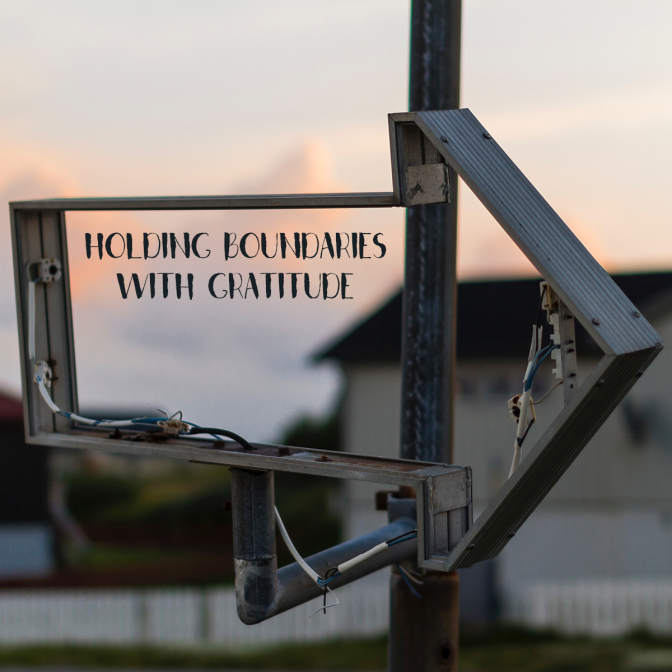Sometimes I say, “it’s ok” and sometimes I say, “thank you”.
How Do You Respond To, “I’m Sorry”?
Previously I have written about saying, “thank you” instead of “I’m sorry” but today I want to focus on how we respond to an apology and the role that gratitude can play. This was inspired by two apologies I received this week. Both apologies were from friends for standing me up. Timing was everything in these examples. One apology came the next day after a friend didn’t come over as planned and didn’t answer texts. Turns out they fell asleep. The other apology was communicated right before we were scheduled to meet because of a work emergency.
Being reliable is a value of mine, something that I strive to be and also something I have come to expect of my friends. But we can’t always be reliable. Things happen. And in those cases all I expect is a heads up. No-showing without any word of cancellation is not acceptable to me. You can say that it is a boundary of mine. When I make plans with people I expect them to either follow through or contact me to let me know if they need to cancel. So this boundary led me to respond differently to the two situations.
The friend who called before our scheduled time to meet up said they were sorry and I said, “it’s OK”. It was OK because I was able to adjust my plans for the evening. This response was different for my friend who didn’t contact me until the next day to say they were sorry. My response to them was, “thank you”. I genuinely thanked them for their apology and made it a point to not say, “it’s OK”. Because it wasn’t OK to me. Yes, I understand that accidents happen. But I’ve found that when I tell people that it is ok that they have violated a boundary of mine it creates a pattern of what is acceptable to me.
By saying “it’s OK” I am literally telling them that it is OK for them to do that even when it isn’t. When we are communicating with people we are teaching them how to treat us. When we have a boundary and it is crossed and we say, “it’s OK” we are saying that the boundary is not a real boundary. But so often it is a real boundary and resentments can begin to build.
So I have been practicing responding to apologies with either, “it’s OK” or “thank you”. And these responses are very strategic. I will only say “it’s OK” if it is something I am welcoming into my life. Something I am expecting to continue here and there. Otherwise my response is, “thank you” accepting their apology with appreciation.

Boundaries protect the things that are of value to you. They keep you in alignment with what you have decided you want in life. That means the key to good boundaries is knowing what you want.
~Adelyn Birch
What are you grateful or about the last apology you received?
[su_button url=”http://www.ourgratitudecollective.com/members/antonia/” background=”#eaf62d” color=”#999999″ size=”20″ center=”yes”]Click for Antonia’s Shared Gratitude[/su_button]
[su_button url=”http://www.ourgratitudecollective.com/activity/” background=”#999999″ color=”#eaf62d” size=”20″ center=”yes”]Click to See Our Collective Gratitude[/su_button]
[su_note note_color=”#e7e7e7″ text_color=”#686767″ radius=”0″] My gratitude journey started in May 2011 and continues to this day. Thank you for being a part of it! A daily gratitude practice is simple. Write down three things you are grateful for each day. Download your free GratitudeGuide. My clients focus on gratitude and learn from their successes to make the positive changes they want in their lives. You can too. Call me to set up our first meeting 505.333.9336. [/su_note]

